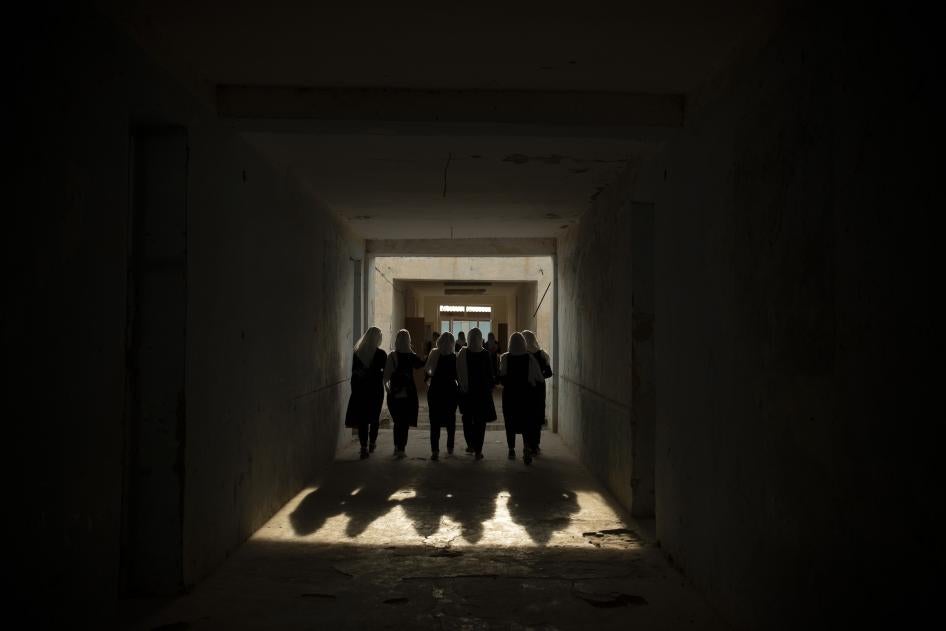Here we are, the women, the world,
Singing freedom like a bird
Rise up, my people,
Rise up, my friend.
Their boots might be on my neck.
Or their fists to my face.
But with our deep light inside
I will fight through this night.
This is what I woke up to this morning. It has remained in my mind, repeating all day. The Taliban have recently issued a new law banning women from singing in public or letting their voices be heard outside the house. In response, Afghan women have been singing this song and other songs and posting videos of it on social media.
The law also requires women to cover their faces, and be accompanied by a male guardian while traveling or even using public transportation. Based on the new law, women are now also prohibited from making friends with “women deemed to be “infidels.”– These are the latest bizarre and brutal rules the Taliban have imposed to deny women and girls their rights to freedom of expression and movement, as well as their autonomy and identity.
This is one of only a few laws the Taliban have published in an official gazette since their takeover three years ago, a further sign of their determination to structurally re-engineer Afghan society to ensure women are seldom if ever seen or heard outside the home.
The United Nations and many governments have strongly condemned these latest actions, but words are not enough. The international community needs to stand with Afghanistan’s women and girls, listen to them, recognize their resistance, and press the Taliban to end these abuses.
The UN Human Rights Council should urgently create a well-resourced international body to collect and preserve evidence of serious human rights violations in Afghanistan—past and present—particularly those against women and girls. In addition, any of the 149 countries that are party to the UN convention on women’s rights can bring a case against Afghanistan before the International Court of Justice for breaching its provisions.
Members to the International Criminal Court should also ensure that the court, which has an ongoing investigation in Afghanistan, has the support it needs to carry out its global mandate.
Women of Afghanistan are an incredibly powerful example of resistance to oppression. They are fighting bravely—we need to support them.
Fereshta Abbasi is an Asia researcher at Human Rights Watch.

